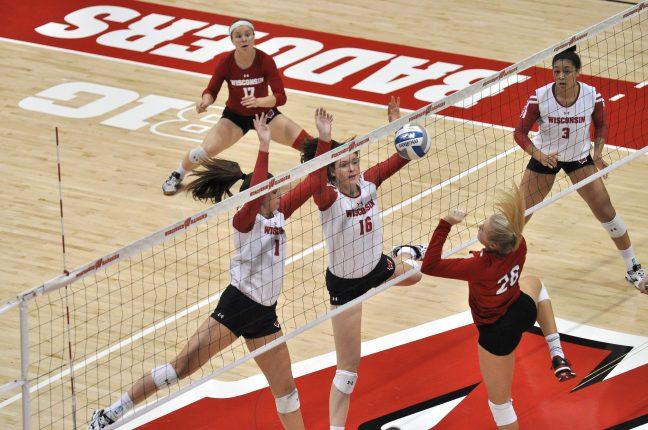Men’s athletic events have taken precedence over women’s for quite some time now. Yet, it’s 2018 and we can do better than this. Nearly two-thirds of tickets bought for the University of Wisconsin’s women’s basketball games this season went unused.
In Madison, there’s no season like tailgate season. The football program consistently sells out of student season tickets within a day, and games are always packed with people. While other sports at UW are not as popular, there is still tremendous support for both men’s hockey and basketball games.
So why do women’s sports not get the same kind of support? This is not just a trend at the UW. According to The New York Times, each men’s basketball team that wins a conference game during the NCAA tournament earns about $260,000 that year as well as $260,000 for each of the five following years. So every win earns a men’s basketball team about $1.56 million. A women’s tournament win, on the other hand, makes literally zero dollars.
This sexist continuation of valuing men’s athletic abilities more than women’s is both wrong and unjust to the women that work just as hard as men to make Division I sports teams and compete while also attending school. There’s no denying that certain sports are more popular than others, however, the deliberate mistreatment of women’s sports teams by both the NCAA and sports fans is unforgivable.
It’s worth noting that while an average of 3,703 (still not a very large number) were expected to attend each Wisconsin women’s basketball game throughout the season, only an average of 1,308 spectators were actually in attendance at each game. For a game against University of Texas-Rio Grande Valley on Dec. 6, 82 percent of the 2,809 tickets purchased went unused and only 497 people were in attendance that night.
It seems one major cause of this could be a lack of advertisement. Football, men’s hockey and basketball games are constantly shoved down student’s throats through social media, email and other forms of promotion. Women’s sports, on the other hand, are barely spoken of or promoted by UW Athletics, let alone advertised by local businesses like football games are. With a lack of advertisement, some spectators buy tickets, but they most likely end up either forgetting about the event or forgoing the opportunity.
In addition, much of society’s focus on men’s sports rather than women is ingrained into societal norms. For as long as sports have existed, there has been a constant reinforcement through movies, TV shows and other forms of media that men should be the ones participating in the sports, and women should be their cheerleaders — both literally and figuratively.
Recently, more men have become involved in cheerleading, and there are more contemporary displays of women as serious athletes, both through cheerleading and other sports like basketball. Ultimately, however, many still view women as fragile and delicate, while men are expected to be tough and athletic.
This conversation is bigger than just UW, however, if the university wants to be the inclusive, diverse campus it claims to be, it needs to fix this. One major first step could be giving women’s athletics the attention they deserve, and advertising sports like women’s basketball just as much as men’s basketball. Furthermore, changing the conversation about stereotypes and viewing women as serious athletes is something both the university and the rest of society needs to start doing as a whole. To recognize women as the strong fighters they are, sports spectators and large universities like the UW need to change their mindsets toward women.
Courtney Degen (cdegen@wisc.edu) is a freshman majoring in political science and intending to major in journalism.


